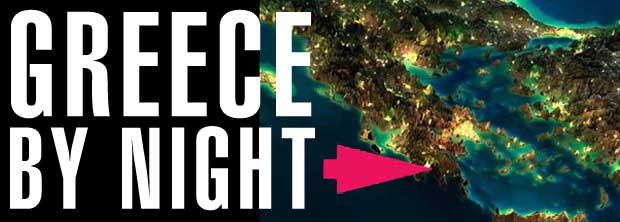Greek War for Independence:
How the Ottomans empowered the Greek Revolution
The Ottoman Empire began to shrink and destabilize in 1683 following their failure to take the city of Vienna by siege, and the following century saw a steady pull back across their many lands as Ottoman strength hollowed out. The 1700s were a long slide featuring losses in combat against Hungary, Austria, Venice, and the Balkans in general, with Russia pressuring constantly, especially in the Black Sea.
Quiet resistance in Greece to the 400 years* of Ottomans rule had always been a game of balance to avoid a violent and heavy response, but individual Greeks, sometimes with the patronage of Russia which was invested in not only Imperial expansion but to consolidate the protection of the Orthodox Church as a Russian responsibility, had influenced the boldness of the effort against the Ottomans wherever it popped up.
In the Aegean, direct attacks on Ottoman shipping and the rule of islands, for example Kea, which was seized for a time by the Greek pirate Lambros Katsonis, was backed by Russia to help harass Ottoman shipping in the Mediterranean.
Arbitrary rule by Ottoman local leadership in Greece (for example, Ali Pasha in Ioaninna) intensified Greek grievances. This was happening just as Greeks in foreign lands, whether merchants or exiles, were gaining both political and military experience which eventually was brought back to Greece.
"Ironically, the Turks themselves unwittingly helped the Greeks hasten the day when they would throw off their yoke. The Turks looked with disdain both upon trade and administration, and they turned these fields over to the Greeks. In Constantinople there developed a class of powerful Greeks administrators and merchants holding some of the most important posts in the Ottoman service. Known as the Phanariots because they lived in a district called Phinar (Lighthouse), near the residence of the Orthodox patriarch, some of these men grew so powerful that they were able to win concessions from the sultan that helped their fellow Greeks prepare for the struggle to come. One Phanariot, for example, got permission to establish Greek schools in the empire. The schools were important in developing leadership in the Greek communities.
In addition, Greeks manned and commanded the trading vessels that brought Turkish goods to European ports. These sailors, responsive as all Greeks to new ideas, reacted to the ferment for change that swept Europe in the wake of the French Revolution and heightened the desire for Greek independence. When the struggle finally came, the sailors provided an instant navy for the Greek forces. Finally, the Turks made the mistake of putting Orthodox church leaders in charge of their communities. The Turks used the church as an instrument of through which to rule, and in so doing, they made priests political as well as spiritual leaders. Those Orthodox priests used their responsibility to keep Greek culture alive in every community and the desire for freedom strong in every generation."
From Hellas, A Portrait of Greece, by Nicholas Gage, pages 76-77. Published by Villard Books, 1987. – Amazon Link for the book
The Leadership of the Revolution in its aftermath
After the Greek War of Independence (1821–1830) ended in victory against the Ottomans, certain key figures played crucial roles in shaping the modern Greek nation. These leaders contributed to the political, military, and diplomatic foundation of the new state.
Ioannis Kapodistrias (1776–1831):
Kapodistrias, a diplomat who previously served as the foreign minister of Russia, became the first head of state of independent Greece. He was appointed Governor of Greece in 1827 and worked to establish the institutions of the new state, including education, the legal system, and administration. He was instrumental in modernizing Greece but faced significant opposition from local warlords and factions. His assassination in 1831 marked a crisis point in Greece's early statehood.
King Otto of Greece (1815–1867):
After Kapodistrias' assassination, Greece became a monarchy under King Otto, a Bavarian prince who was chosen by the Great Powers (Britain, France, and Russia) in 1832. Otto ruled from 1833 to 1862 and oversaw the consolidation of the Greek state, the development of Athens as the capital, and the creation of new institutions. However, his autocratic style of governance led to unrest and his eventual deposition.
Theodoros Kolokotronis (1770–1843):
A military leader and key figure in the Greek War of Independence, Kolokotronis became a national hero for his role in leading Greek forces against the Ottomans. After independence, he continued to exert influence in Greek politics and was a supporter of Ioannis Kapodistrias. Although his influence waned after Kapodistrias' assassination, Kolokotronis remained a symbol of the revolutionary victory and it's national ambitions.
Alexandros Mavrokordatos (1791–1865):
Mavrokordatos was a political leader and diplomat who played a significant role in both the military and diplomatic efforts during the war. He served as Prime Minister of Greece multiple times and was a leading figure in shaping the early constitutional framework of the Greek state. Mavrokordatos advocated for a more Western-oriented Greece, favoring close ties with the Great Powers.
Andreas Miaoulis (1769–1835):
Miaoulis was a prominent naval commander during the Greek War of Independence, leading the Greek fleet in several key battles against the Ottomans. After the war, he became involved in the political struggles of the new state, aligning himself with factions opposing Kapodistrias. Miaoulis played an important role in shaping the maritime defense of a young Greece uniquely exposed because of the network of islands and the extraordinarily long coastline of the mainland.
FOOTNOTES
*"400 years of Ottoman Rule" is a rough estimate of the time span of their rule, but that doesn't take in account certain factors, for example, The Greek War of Independence starts in 1821, and by the 1830s a first independent Greek state is recognized. Other Greek-inhabited regions like Crete, Epirus, Macedonia, and Thrace stayed under the Ottomans much longer, as late as the 19th and early 20th century.



Greece's Golden Visa program
